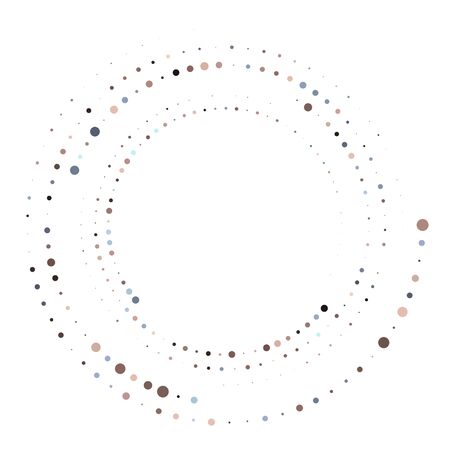Introduction to the Lunar Nodes in Astrology
Astrology has long held a certain fascination within British culture, from Elizabethan court astrologers to modern-day horoscopes in popular newspapers. Among its many symbols and points of interpretation, the Lunar Nodes—known as the North Node and South Node—occupy a significant place in understanding one’s life path and personal growth. The Nodes are not physical bodies but rather mathematical points where the Moon’s orbit intersects the ecliptic, or the apparent path of the Sun as seen from Earth. In traditional astrology, these points are believed to represent karmic lessons: the South Node refers to inherent tendencies and past experiences, while the North Node signals future growth and new directions. For those in the UK seeking insight into their personal development, examining the Lunar Nodes offers a unique blend of introspection and tradition. The study of astrological nodes has woven itself into British esoteric history, from mediaeval manuscripts to contemporary spiritual practices. By exploring what these Nodes mean within an astrological chart, one can uncover guidance that is both deeply individual and resonant with broader cultural narratives about destiny, self-discovery, and societal contribution.
2. Cultural Attitudes towards Destiny in Britain
When exploring the Nodes of the Moon within the context of British life path development, it becomes essential to consider the distinct cultural attitudes towards destiny, fate, and self-determination that pervade British society. These perspectives can deeply influence how individuals interpret astrological concepts such as the North Node (representing future growth and potential) and the South Node (signifying inherited traits or past tendencies).
The British approach to destiny is historically nuanced, balancing a strong sense of pragmatism with subtle undercurrents of mysticism. While some cultures might embrace a more fatalistic outlook—believing that one’s life trajectory is predetermined—the British tradition often favours personal agency and resilience. This interplay between external forces and individual effort shapes how people in Britain may engage with lunar nodes when considering their own paths.
| Belief System | Key Characteristics | Impact on Node Interpretation |
|---|---|---|
| Pragmatism | Emphasis on practicality, scepticism towards unproven ideas | Tendency to view Nodes as symbolic tools for reflection rather than fixed predictors |
| Stoicism | Valuing endurance, composure, and self-control in adversity | South Node may be seen as lessons to integrate rather than burdens to escape |
| Mystical Heritage | Subtle appreciation for folklore, spiritual traditions, and synchronicity | North Node aspirations might be embraced as part of a broader spiritual journey |
| Self-Determination | Focus on autonomy, shaping one’s own destiny through choices | Lunar Nodes become frameworks for proactive goal-setting and growth |
This blend of attitudes results in a characteristically British interpretation of the Nodes: neither wholly deterministic nor entirely dismissive. The prevailing narrative encourages individuals to use astrological insights as a springboard for personal development rather than as an immutable script. In essence, while many Brits may consult the Nodes for guidance, there remains an underlying belief that one’s actions, decisions, and perseverance are equally critical in shaping a meaningful life path.

3. Applying Lunar Nodes to British Personal Growth
In recent years, the practice of using the lunar nodes—the North Node and South Node—has gained traction among individuals in Britain seeking greater self-understanding and purposeful life direction. While astrology is often viewed with a degree of scepticism in British culture, many people are finding that integrating the symbolic meanings of the nodes can support personal growth in a manner aligned with British values such as pragmatism, self-improvement, and community contribution.
Reflection Within a British Context
The North Node, representing one’s aspirational path, and the South Node, symbolising ingrained habits or past patterns, offer a framework for structured self-reflection. In the UK, this often translates into journal writing or guided discussions that critically assess how inherited family expectations (South Node) might be limiting one’s potential. Individuals may participate in local workshops or book clubs focused on life planning, weaving these astrological insights into more traditional British practices of goal-setting and periodic review.
Goal-Setting and Life Planning
Practical application is key. Many Britons use the lunar nodes as prompts for annual or quarterly life assessments—a familiar process in a society that values incremental improvement. For example, an individual might set intentions that align with their North Node sign during New Year’s resolutions or at significant birthdays. These goals are typically realistic and community-minded: volunteering locally, developing new skills through adult education courses, or mentoring younger colleagues at work.
Balancing Tradition and Progression
Respect for tradition is a cornerstone of British life, yet there is also a strong undercurrent of forward-thinking adaptability. The South Node can help illuminate which cultural or familial traditions are genuinely supportive versus those that may be holding someone back. By consciously choosing which patterns to maintain and which to evolve, individuals can honour their heritage while embracing change—mirroring wider social dialogues about modern British identity.
Integration with Societal Norms
Engaging with the lunar nodes does not necessitate radical change; rather, it encourages thoughtful evolution within the bounds of accepted societal norms. Britons often approach this process with humility and humour—using self-deprecating wit as they share learning experiences with friends over tea or at community gatherings. This approach helps maintain emotional resilience and fosters a sense of collective progress.
By practically applying insights from the lunar nodes within the framework of British values—pragmatism, respect for tradition, and community engagement—individuals across the UK are finding new ways to navigate personal development while contributing positively to their families and society at large.
4. Case Studies: British Life Stories and the Nodes
To bring the concepts of Lunar Nodes into sharper focus, it is helpful to consider British life stories where the North and South Node placements are particularly evident in personal development. Below, real and hypothetical examples illustrate how these astrological points can manifest within culturally familiar scenarios, such as career shifts, family expectations, or community involvement.
Example 1: The Community-Minded Councillor
Consider a woman from Manchester with her North Node in Aquarius and South Node in Leo. Raised in a family with traditional values (Leo), she was encouraged to follow in her father’s footsteps as a local business owner. Yet, her path led her towards community activism and public service (Aquarius), eventually becoming a city councillor focused on innovative housing solutions. Her journey reflects the shift from personal recognition to collective contribution, resonating with the British value of civic duty and grassroots change.
Example 2: The Creative Londoner
A young man born in Hackney with his North Node in Pisces and South Node in Virgo grew up under pressure to excel academically and pursue a stable career (Virgo). However, his true calling was found in the arts—writing poetry inspired by multicultural London life (Pisces). By embracing creativity over perfectionism, he navigated societal expectations while finding fulfilment through artistic expression.
Summary Table: Sample British Life Paths and Lunar Nodes
| Name/Scenario | Node Placement | South Node Theme | North Node Calling | Cultural Resonance |
|---|---|---|---|---|
| Manchester Councillor | Aquarius-Leo | Family legacy, tradition | Community innovation, social reform | Civic engagement, local politics |
| London Poet | Pisces-Virgo | Academic achievement, routine | Artistic expression, empathy | Creative industries, multiculturalism |
| Hypothetical: Scottish Entrepreneur | Sagittarius-Gemini | Local ties, familiar environments | Exploration, international business | Global outlook vs. local roots debate |
| Hypothetical: Welsh Teacher | Cancer-Capricorn | Professional ambition, structure | Nurturing others, emotional connection | Education sector values, community care |
Insights for Self-Reflection
The above case studies showcase how the Lunar Nodes can serve as a blueprint for growth within the context of British society. Whether moving from individual achievement to collective welfare or balancing tradition with innovation, understanding one’s Nodes may illuminate both challenges and opportunities unique to the British cultural landscape.
5. Contrasts with Other Astrological Approaches
When examining the interpretation of the Lunar Nodes within British astrology, a distinct set of values and perspectives emerges in comparison to continental or international approaches. In Britain, there is a strong tradition of blending psychological insight with practical application—a legacy of figures such as Charles Carter and Liz Greene, who have shaped a uniquely British astrological voice. Whereas some cultures may view the Nodes primarily through a karmic or reincarnational lens, British astrologers often emphasise themes of personal development, social context, and self-understanding rooted in daily life.
For instance, Indian Vedic astrology attributes highly deterministic qualities to the Nodes (Rahu and Ketu), often focusing on fate and spiritual lessons. Meanwhile, American interpretations sometimes lean towards individual destiny narratives or dramatic life changes. In contrast, British astrologers frequently ground their analysis in understated realism and gentle encouragement towards self-awareness. There is a tendency to contextualise nodal placements within family history, local community experience, and one’s unique contribution to society—reflecting the British value placed on both individuality and communal responsibility.
The language used by British practitioners is also noteworthy for its measured tone. Rather than making sweeping predictions, interpretations of the Nodes tend to offer thoughtful guidance aimed at supporting steady growth. This can be seen as an extension of broader cultural attitudes: a preference for subtlety over sensationalism, an appreciation for historical continuity, and a recognition of the complexities inherent in any life path. These qualities set British astrological practice apart from its global counterparts and contribute to its ongoing evolution in both traditional and contemporary contexts.
6. Contemporary Relevance: The Nodes and Modern British Life
In the context of 21st-century Britain, the ancient symbolism of the Lunar Nodes—those cosmic markers of destiny and karmic direction—finds itself in a complex and evolving social landscape. As British society continues to diversify and adapt, traditional interpretations of the North Node (Rahu) and South Node (Ketu) are being re-examined through new cultural lenses. Historically, the Nodes have been used to highlight personal growth trajectories, but today’s Britons are increasingly interested in how these themes map onto issues such as social mobility, multicultural identities, and collective values.
The UK’s shifting attitudes towards identity, tradition, and progress mean that the Lunar Nodes can no longer be interpreted solely through a static or monolithic lens. For example, the South Node’s association with heritage and comfort zones resonates differently in a Britain where ancestral ties might span continents, or where generational divides in worldview are pronounced. Similarly, the North Node’s call towards innovation and unfamiliar territory may speak directly to those navigating hybrid cultural identities or embracing emerging social norms around gender, community, or work-life balance.
British astrology enthusiasts and practitioners now find themselves in an experimental phase—testing how the Nodes’ archetypal meanings can remain relevant amidst rapid change. This might involve reframing the South Node not as something to ‘escape’ but as a source of resilience from one’s roots, or viewing the North Node’s promise as encouragement to participate in building a more inclusive society. In public discourse, there is also greater awareness of how collective experiences—such as Brexit, evolving notions of Britishness, or responses to global crises—shape the backdrop against which individual life paths unfold.
Ultimately, contemporary interpretations of the Lunar Nodes in Britain reflect an ongoing dialogue between past and present. They invite individuals to consider how inherited narratives intersect with modern aspirations—a process deeply influenced by local context but also open to creative reinterpretation. In this sense, the Nodes continue to offer guidance for personal development, but their wisdom is now filtered through the lived realities of modern British life. It is this adaptability that ensures their enduring relevance on both individual and collective levels.


